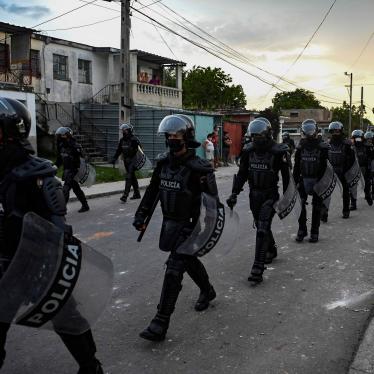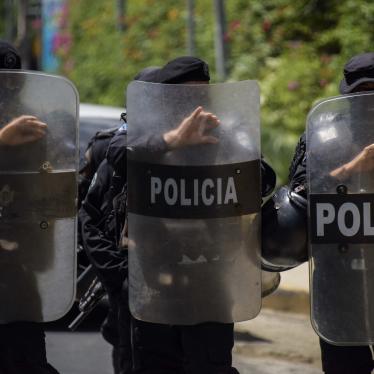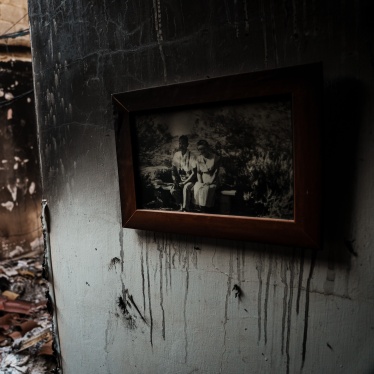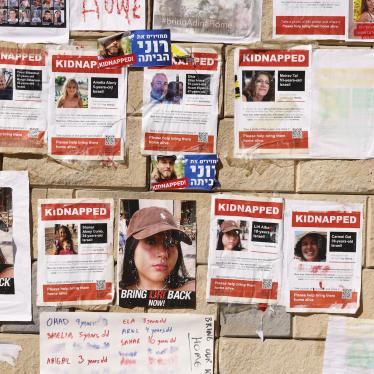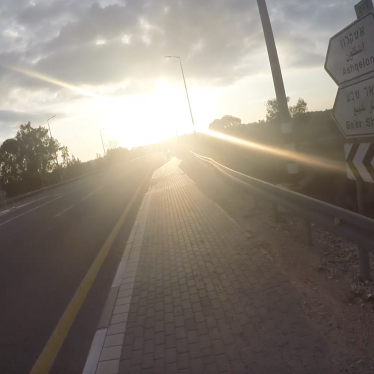The passage of a new press law in Chile represents an important step toward protecting freedom of expression, Human Rights Watch said today. While welcoming the legislation, which passed the Senate yesterday, Human Rights Watch warned that press freedom in Chile is still narrowly circumscribed.
The new law is good news for the people still facing defamation charges under the State Security Law," said Jose Miguel Vivanco, executive director of Human Rights Watch's Americas division. "It bodes well for freedom of the press and Chilean democracy. But more needs to be done to bring Chile's speech laws into line with international standards."
The so-called Press Law that just passed repeals article 6(b) of the State Security Law, a provision that criminalized "contempt of authority." The repealed provision mandated prison sentences for those who "insult" public authorities such as the president, commanders-in-chief of the armed forces, members of Congress and the Supreme Court.
More than thirty journalists, politicians and ordinary citizens have been prosecuted under this statute since Chile returned to democratic rule in 1990, the most recent cases being brought in February 2001. At least eight people are currently charged or face possible charges under article 6(b).
Also repealed is article 16 of the State Security Law, which was used in 1999 to confiscate the entire stock of The Black Book of Chilean Justice, an expose of judicial corruption, on the day of its launch.
Among other notable improvements of the new Press Law is the fact that journalists will be protected from any obligation to reveal their sources, and courts will no longer be allowed to gag press reporting of controversial criminal cases. All prosecutions for press offenses will be conducted solely by ordinary civilian courts, ending the powers of military tribunals to try journalists for sedition.
First introduced by the Aylwin government in 1993, the Press Law was the object of numerous revisions during its eight years in congressional debate. It was finally approved by the lower house on April 10, and yesterday by the Senate. [President Lagos is expected to sign the bill next week.]
Yet restrictions on freedom of expression still pervade Chilean legislation. Existing laws offer ample avenues for officials to ban publications and prosecute critics for defamation.
Articles 263, 264, and 265 of the ordinary criminal code, for example, still permit prosecutions for defamation of the President, members of Congress, judges, and ministers of state. In a report published in March, Progress Stalled: Setbacks in Freedom of Expression Reform, Human Rights Watch urged the government to abolish these provisions, as well as those in the State Security Law.
Other objectionable provisions include those that allow judges to confiscate publications. One such provision is Article 30 of the State Security Law, which allows judges to impound publications used to commit libel against a state authority.
The repeal of contempt of authority laws has been a long-standing recommendation of the Organization of American States' Special Rapporteur on Freedom of Expression and of press organizations, including the Inter-American Press Association (IAPA). In response to appeals from Human Rights Watch and the IAPA, President Lagos pledged last month to introduce a bill to eliminate the questioned provisions of the criminal codeduring the current year.
The government has recently said it intends to re-examine Chile's strict privacy laws and aims to replace criminal prosecutions for libel with civil proceedings and fines.
In a separate initiative, Congress is in the final stages of approving another long-delayed reform which will eliminate film censorship from the constitution. In a landmark case in February, the Inter-American Court of Human Rights found that Chile's censorship of the film The Last Temptation of Christ violated the American Convention on Human Rights. The court called on Chile to amend its domestic law to eliminate prior censorship.
"Chile is well on the way to erradicating the vestiges of its authoritarian past, particularly those that enfringe on free expression," said Vivanco. "We urge Chile's legislators not to stop here, but rather to eliminate all the other restrictive laws that keep Chileans from enjoying full rights to freedom of speech."
